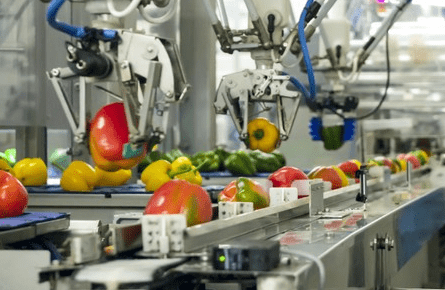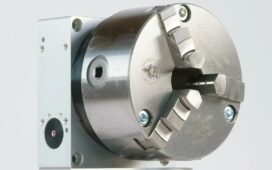In the ever-evolving world of food safety, the importance of robust protocols and innovative solutions cannot be overstated. With increasing concerns about foodborne illnesses and contamination, the food industry has been undergoing a significant transformation in recent years. One of the key drivers of this change is the advent of advanced food handling solutions. These solutions encompass a wide range of technologies and practices aimed at ensuring the safety and quality of food throughout the supply chain. In this blog post, we will explore how these advanced solutions are reshaping the industry landscape and revolutionizing the way we approach food safety.
Understanding Advanced Food Handling Solutions
Advanced solutions encompass a wide range of technologies, practices, and strategies designed to enhance food safety and quality at every stage of the supply chain. These solutions leverage cutting-edge innovations in areas such as food processing, packaging, transportation, and storage to mitigate the risk of contamination and ensure compliance with regulatory standards.
1. Smart Packaging Technologies
One of the most exciting developments in solutions is the emergence of smart packaging technologies. These innovative packaging solutions are equipped with sensors and other advanced features that can monitor various parameters such as temperature, humidity, and gas composition in real-time. By providing valuable insights into the condition of the food inside the package, smart packaging technologies help prevent spoilage and contamination before it occurs.
2. Blockchain and Traceability Systems
Blockchain technology is revolutionizing the way we track and trace food products throughout the supply chain. By creating an immutable digital ledger of transactions, blockchain enables transparent and verifiable record-keeping from farm to fork. This level of traceability not only enhances food safety by enabling rapid identification of the source of contamination but also improves supply chain efficiency and reduces the risk of food fraud.
3. Automated Food Processing Equipment
Automation is increasingly becoming a cornerstone of modern food processing facilities. Advanced food handling solutions leverage automated equipment and robotics to streamline production processes, minimize human error, and maintain the highest standards of hygiene and sanitation. From automated sorting and packaging systems to robotic arms capable of intricate food handling tasks, automation is transforming the way food is processed and packaged.
4. Data Analytics and Predictive Modeling
Data analytics and predictive modeling play a crucial role in identifying and mitigating potential food safety risks before they escalate into full-blown crises. By analyzing vast amounts of data from various sources, including sensors, IoT devices, and historical records, food safety professionals can identify patterns and trends that may indicate emerging risks or vulnerabilities in the supply chain. This proactive approach allows for timely interventions and preventive measures to safeguard public health.
The Impact of Advanced Food Handling Solutions
The adoption of advanced solutions is having a profound impact on the food industry landscape, with far-reaching implications for stakeholders across the supply chain.
1. Enhanced Food Safety and Quality
Perhaps the most significant impact of advanced solutions is the enhancement of food safety and quality standards. By leveraging technology and best practices, food manufacturers can minimize the risk of contamination, spoilage, and other safety hazards, thereby ensuring that consumers receive safe and high-quality products.
2. Improved Regulatory Compliance
Regulatory compliance is a critical aspect of food safety management, and failure to comply with applicable regulations can have serious consequences for businesses. Advanced solutions help companies stay ahead of regulatory requirements by providing tools and systems that facilitate compliance monitoring, reporting, and documentation.
3. Greater Supply Chain Resilience
The COVID-19 pandemic exposed vulnerabilities in the global food supply chain, highlighting the need for greater resilience and adaptability. Advanced food handling solutions enable companies to build more resilient supply chains by enhancing transparency, traceability, and agility. By leveraging real-time data and analytics, companies can identify and mitigate supply chain disruptions more effectively, ensuring uninterrupted access to safe and nutritious food.
4. Consumer Confidence and Trust
In an era of heightened consumer awareness and scrutiny, building trust and confidence in food products is paramount. Advanced solutions help companies demonstrate their commitment to food safety and quality, thereby earning the trust and loyalty of consumers. By providing transparent information about the origin, handling, and safety of their products, companies can empower consumers to make informed choices and drive demand for safer, more sustainable food options.
Challenges and Opportunities
While advanced solutions offer significant benefits, they also present challenges and opportunities for stakeholders in the food industry.
1. Cost and Implementation Challenges
The adoption of advanced solutions often requires substantial investments in technology, infrastructure, and training. Small and medium-sized businesses, in particular, may face challenges in terms of cost and technical expertise. However, with the right support and incentives, companies can overcome these barriers and reap the long-term benefits of improved food safety and operational efficiency.
2. Cybersecurity Risks
As food production and distribution become increasingly digitized and interconnected, cybersecurity risks are becoming a growing concern. Hackers and cybercriminals may target critical infrastructure, data systems, and supply chain networks, posing threats to food safety and integrity. Addressing these cybersecurity risks requires robust strategies, protocols, and investments in cybersecurity infrastructure to protect against potential breaches and cyberattacks.
3. Innovation and Collaboration Opportunities
Despite the challenges, advanced solutions present significant opportunities for innovation and collaboration within the food industry. By embracing emerging technologies, sharing best practices, and fostering collaboration among stakeholders, companies can drive continuous improvement in food safety standards and practices. Cross-sector partnerships, research initiatives, and knowledge sharing platforms can facilitate the development and adoption of cutting-edge solutions that benefit the entire food ecosystem.
Conclusion
In conclusion, advanced food handling solutions are revolutionizing the way we approach food safety and quality assurance. By leveraging innovative technologies, best practices, and collaborative strategies, companies can enhance food safety, improve regulatory compliance, and build consumer trust and confidence. While challenges remain, the opportunities for innovation and collaboration are immense, paving the way for a safer, more resilient, and sustainable food future.
As the food industry continues to evolve, the importance of investing in advanced solutions cannot be overstated. By prioritizing food safety and embracing the latest advancements in technology and best practices, companies can stay ahead of the curve and ensure that the food we eat is safe, nutritious, and of the highest quality.







